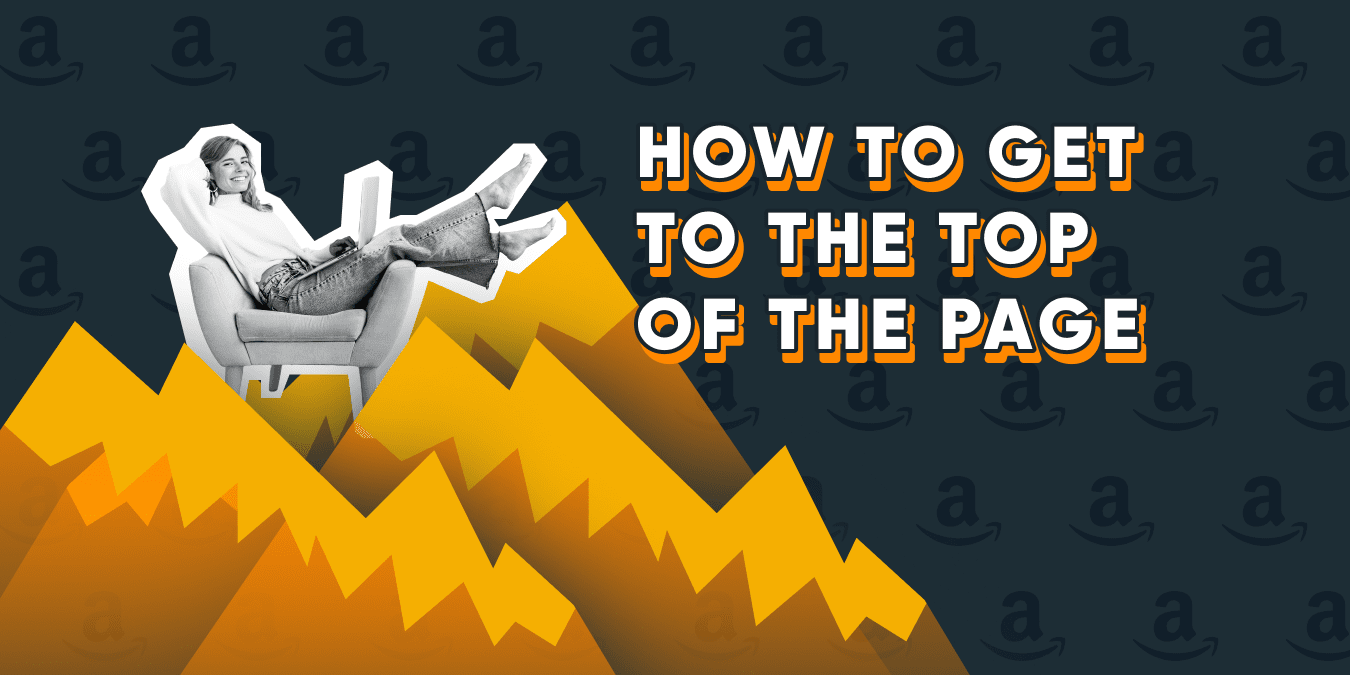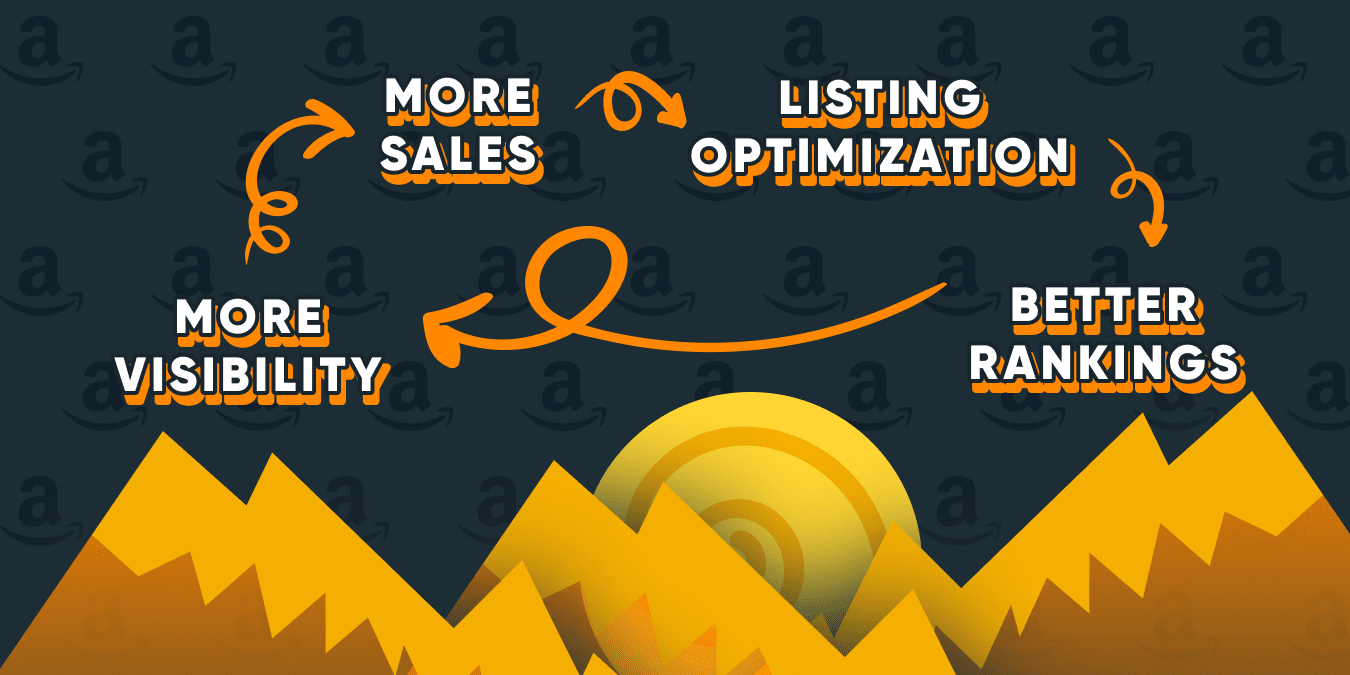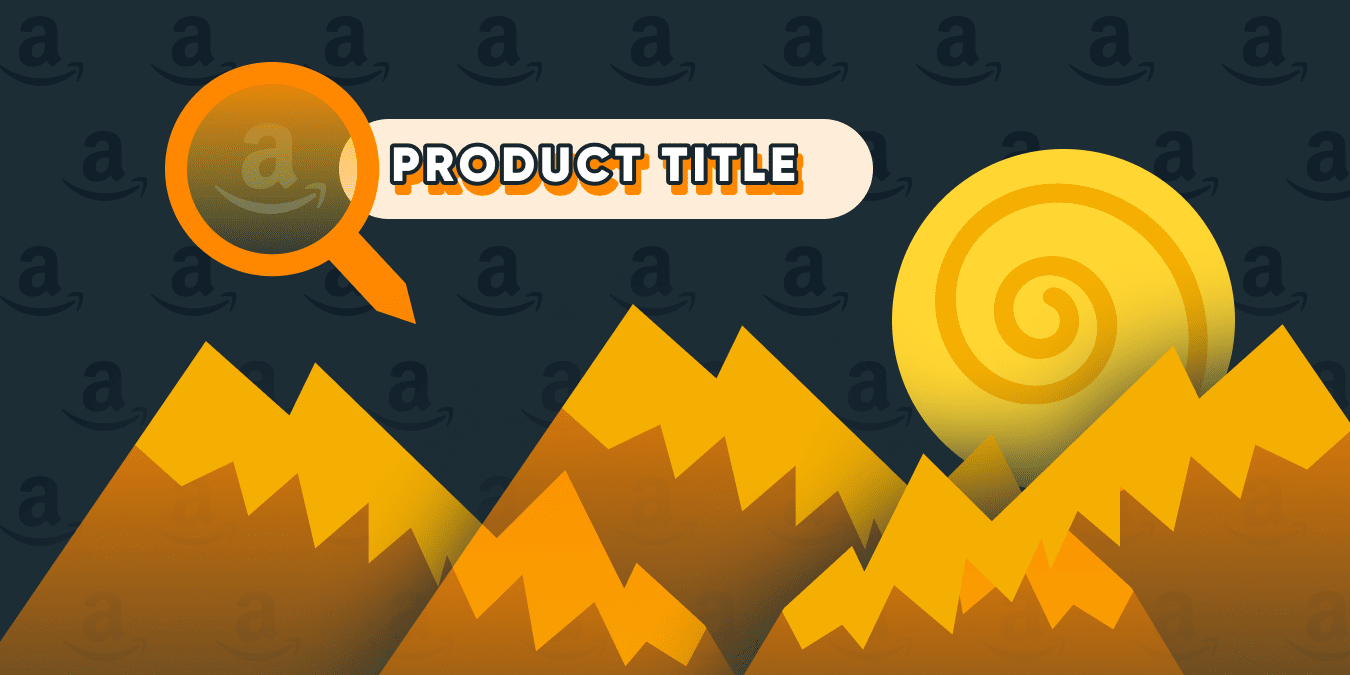
What can help you get to the top of the search results?
Selling your products on Amazon has many benefits. One of the most significant ones is the fact that you can advertise on a platform that already has millions of daily visits. Amazon gives you the key to their audience; all you have to do is wow them! Sounds a lot easier than creating your own ecommerce website, attracting shoppers, and selling through social media, right?
Yes and no. There are many things you need to master besides retail arbitrage for beginners and the basics of marketing. Though selling on Amazon is an amazing opportunity that you cannot pass up, it can also be quite challenging to find your niche on the platform. We can describe that process in three simple words: Amazon listing optimization. Perhaps that doesn’t sound so simple. Believe that it will all make sense when you get to the end of this article!
What is Amazon Listing Optimization
In essence, Amazon listing optimization is the process of getting your listings to the top of the search results. The truth is, people rarely get to the last page of their search results, or even to the third one. Your job as a seller is to push your products to the top to give them a fair chance of being sold.
It’s not all about finding the best products to sell on Amazon and running expensive ads on social media platforms. There are several ways you can optimize your Amazon product listing. You can use keywords that rank high in searches related to your product, you can add images that fit the format of Amazon, you can make your product title shorter and your product description more thorough. If that already sounds like too much work, you can get a little bit of help from Sellbery.
Amazon Algorithm and How It Works
Amazon is a powerful platform similar to huge corporations like Google and Facebook. As you continue to use Amazon to do your shopping, the items that are recommended to you will get more and more specific. The platform is able to provide accurate search results and find exactly what you’re looking for with relative ease. After all, Amazon makes more money when it is able to sell more goods. The faster it can offer you the thing you’re looking for, the more money it can make. Eventually, the algorithm is able to offer you things you didn’t even know you needed!
Amazon’s algorithm is incredibly complex. To put it simply, it works by analyzing searches and keywords. When a shopper types in their search, the algorithm compares it to previous similar searches by other shoppers. Amazon uses that information to match the shopper to the perfect product that they are looking for. That’s why following Amazon listing guidelines is so important for sellers.

The algorithm knows that people don’t want to spend lots of time looking for the right thing. They want it to be handed to them. To ensure that, Amazon uses keywords and other metrics to determine what to show in your search result. It will almost always choose to show the products that have the best reviews, highest rankings, steady high sales, quick delivery times, and reasonable prices. In other words, if your product is selling well right now, Amazon will continue to push it to the top of customers’ searches. No surprise there! That just goes to show how much of an art listing items on Amazon can be. So, how can you get your product to sell well? You can start by doing your own research on Amazon and figuring out what the trends are right now.
How to Create a Listing on Amazon
Before you get to Amazon listing product optimization, you need to create your listing from scratch. It’s not as difficult as you may think and it shouldn’t last you longer than a couple of minutes to get your first listing out. One problem that many sellers encounter is having to repeat the listing creation process on different platforms. If you are practicing multichannel selling, you’re probably no stranger to that issue! Having to keep rewriting the same product description and uploading the same photos is very inconvenient and time-consuming.
If that sounds like a problem that you can relate to, you might benefit from Sellbery’s Amazon product listing optimization services. In short, Sellbery is a software solution and Amazon listing software that can sync all of your e-commerce platforms and upload the listings to all of them simultaneously. Find out more about our Amazon listing software on our website. Follow the steps outlined below to find out all about listing a product on Amazon!
- Access your seller account and find the Inventory menu.
- Select Add a Product if you want to create a listing for a product you’ve already added.
- If you don’t know how to add one of your products to Amazon, click here and follow the steps outlined on the website.
- That’s all! For a more detailed tutorial visit Amazon.
Amazon Listing Optimization Tips
Once you’ve added your product and created a listing, you can move on to Amazon listing optimization. We have gathered some tips and tricks that should help you with Amazon listing creation. Follow them and do your own research to add to our knowledge. While you can very much rely on data analysis in this day and age, we also encourage you to think like a consumer. What would appeal to you?
Keep your title short
It may be your first instinct to add as many keywords as possible to the title of your Amazon product listing. While keywords are awesome (more on that later), using too many can actually make your product less appealing. For starters, many sellers choose to overload their titles with keywords to the point where the title doesn’t make sense anymore. That can make your listing and store look like a scam. In the best-case scenario, the shopper will simply not understand what product you’re selling based on the title and move on to the next product in their search results.
Another reason to keep your title short is to accommodate mobile users. In this day and age, lots of shopping is done through the small screens of smartphones. You don’t want to exclude smartphone shoppers from your store, so make sure your product title can fit on their screen.
Use your brand name in the title
You only have a limited number of characters, so make sure you use it wisely. You absolutely should include your brand name and product name in the title. While including your brand name may seem like a waste of characters if you are not an established brand yet, it is actually the opposite. Doing so will increase brand visibility and make you appear more mature to your audience. Even if a shopper doesn’t end up buying your product, they will subconsciously remember your name next time they see it, creating a familiarity effect. Don’t forget about that when listing items on Amazon.

Use keywords
We’ve touched on keywords and how important they are. Now, let’s expand and really get into it. Keywords can do you a disservice by crowding the text and creating a nonsensical product description or title. On the other hand, they can push your listing to the top of the search result and help you find your customer. The key is to use them wisely.
Because you cannot afford to enjoy the fun of trial and error, you need to approach your keyword density with an analytical mind. Use an established keyword search and/or SEO tool to figure out which keywords and phrases have the most clicks. Effective link building services not only securing backlinks from reputable sites but also ensuring those links are contextually relevant to your niche. They must be relevant to the product you’re selling. Implement as many as you can and focus on the most popular ones. At the same time, try not to go overboard and make sure your text is still easy to read.
Establish your unique selling proposition early on
A long and detailed product description can be good, but it can also turn shoppers away. The truth is, many people won’t read the whole thing if they are not immediately drawn in with the first couple of sentences. Therefore, you have to let the people know why they should choose your product when they can go for hundreds of others.
Try to be as specific as you can without sounding too sales-y. Make sure to follow Amazon listing guidelines regarding the things you can and cannot say in your product descriptions. For instance, steer clear of superlatives. Instead of saying you have the best paper straws on the market, talk about why they are the best. Mention that they don’t get soggy for hours at a time (a common problem with paper straws) or talk about your unique designs. A good rule to abide by is – present your product without selling it. One thing about listing a product on Amazon – let the product speak for itself.
Utilize bullet points
Amazon bullet points tell shoppers everything they need to know about the product early on. Use that to your advantage! Describe your product using short and concise phrases. Paint a picture of the product in a few words and invite the shopper to keep on reading. This is your second first impression, so the stakes are high! Bullet points can either build on the success of the title and first image, or make the shopper click off the listing altogether. Use this tip when listing a product on Amazon.
Build trust
Everybody knows that marketing often consists of showing what you’re selling from the best side and convincing people to buy a product they don’t really need. While many marketers resort to lying and over exaggerating, we don’t recommend you do that in your Amazon product listing. You should definitely talk about the uses, features, and benefits of your product, but don’t lie. It will pay off in the long-run and help you build trust with your customers. After all, even if your shoppers fall for it, they will eventually realize that the product they received looks nothing like the one they saw in your Amazon product listing. That may result in refund requests and negative reviews.
Another effective way to build trust with your customers is by offering some sort of a money-back guarantee or warranty. If you can afford to do that, don’t hesitate to advertise it in your Amazon product listing. Your customers will love to hear that their money won’t go to waste. It is also easier to purchase a product that you can return.
Don’t resort to cheap tactics
In this situation, cheap tactics may include announcing a sale on your product in the title or calling it a bestseller when it is, in fact, not. Though you may think doing so will make your listing more attractive, it will actually do the exact opposite. It will make your product look cheap and your brand appear less trustworthy. Steer clear of cheap tactics to avoid devaluing your product.
Add images to your listing
When you buy something in a store, you have the benefit of being able to see and feel the product. You can touch it, fiddle it in your hand, try it on for size, feel the material it’s made of, and so on. You also get to see the exact color of the product in natural daylight. Online shopping doesn’t give you that experience. Because of that, you must add images to your listings.

A picture is worth a hundred words. You can use keywords and write lengthy descriptions all you want. If your listing doesn’t have any visuals, it isn’t going to do well. Regardless of how photogenic your product is, you need to upload some pictures of it. It is very important to stick to the Amazon listing photo requirements when you upload your images.
The first image is arguably the most important one. That’s the image shoppers see when they scroll through their search results. The image has to clearly show your product with nothing else in the background or around the item. It is crucial to make it as clear as possible that this is the product that you are selling. Avoid confusing your shoppers with crowded and messy images.
The other images can show details of the product, the product in action, as well as interesting statistics about the product. Try to think like a consumer when you’re creating and uploading images for your Amazon product listing. If you were shopping and came across your product, what would you want to know? What do you look for when you’re shopping on Amazon?
Add a video to your listing
If a picture speaks a hundred words, then a video speaks at least a thousand! Adding a video to your Amazon product listing is a great way to optimize it and make it more interesting. Follow the steps outlined in this article to find out how to add a video to Amazon listing. Make sure to follow Amazon’s policies when including visuals in your listings. Always strive for the best quality to create a pleasant viewing experience.
Know how to handle errors
Amazon listing errors are not a rarity. You will probably come across an error or two at some point in your career as an Amazon seller. While errors are not the end of the world, they can set you back a few minutes. The best thing you can do to prevent errors and save yourself some time in the long-run is read the official policies of Amazon. Follow them closely and you should never have an issue with your listings.
A common issue that sellers have concerns images. A listing cannot have more than 8 images. You will get an error message and your listing won’t post if you include over 8 pictures. Another one that many people struggle with is inputting the correct values in all the boxes. For instance, if you’re asked about the length of a product, you need to input the value without the unit of measurement, as that will be automatically assigned by Amazon.
Final Words
As you can see now, Amazon product listing optimization is absolutely crucial for the success of your brand. A smart approach to listing optimization can almost guarantee success on the platform. If you implement the tips mentioned above and follow Amazon listing guidelines quite closely, your products will start to rank higher in searches.
The truth is, Amazon listing optimization is a lot of work. It will take some time to get used to the format, but once you’ve had some practice, it will start to get easier. For a little help, you can try Sellbery’s Amazon listing optimization service. See how the software fits into your e-commerce business before you commit to it long-term and sign up for a free trial.
Was this news helpful?







 Yes, great stuff!
Yes, great stuff! I’m not sure
I’m not sure No, doesn’t relate
No, doesn’t relate



